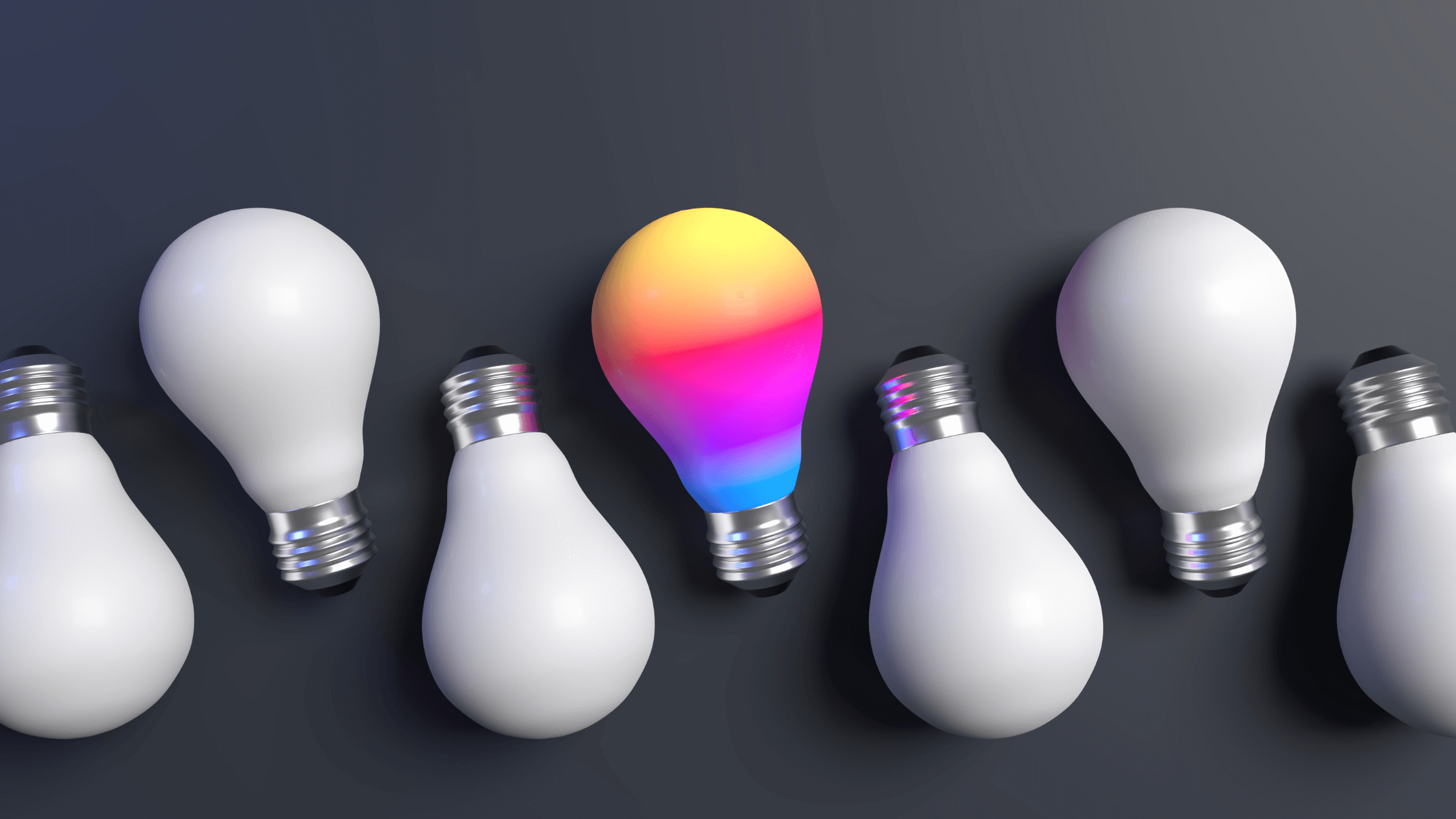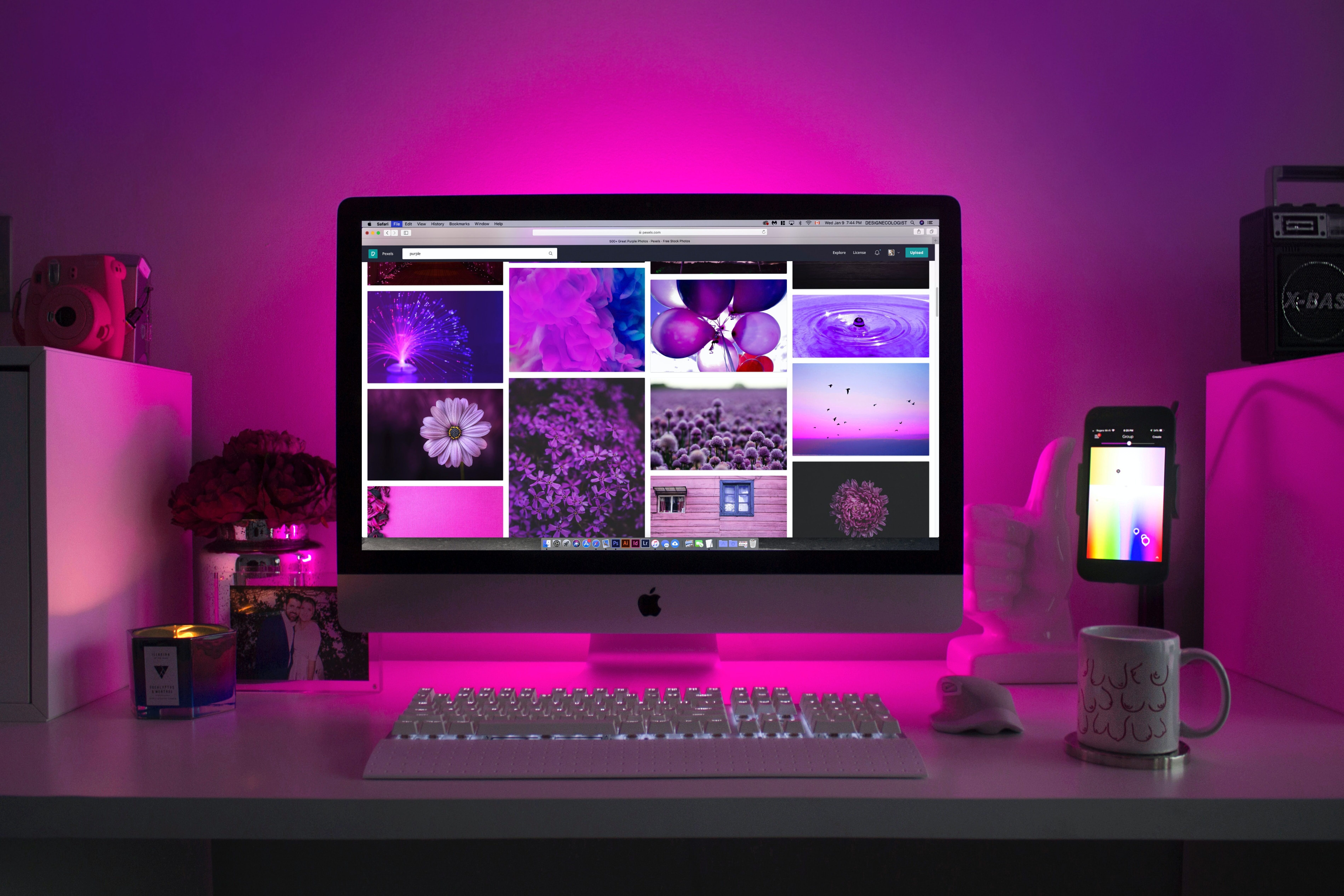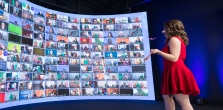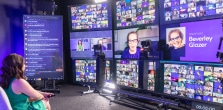
Blink your eyes three times.
That’s 1 second — the amount of time it takes for 10 new websites to hit the internet. (That’s 86,400 new sites each day!) Holy Christmas!
How do you compete against that? It’s actually easy.
1. First, stop following the latest & greatest “web design” trend articles that get put out every year. Web designers can tell you what’s new & what looks good, but they’re rarely experts in what works to CONVERT traffic into results online.
2. Second, implement these 8 new conversion trends I’ve identified.
(By sticking to what converts, you’re guaranteed that you’ll get a return on your investment.) Here they are, starting with the MOST important one of all. The one trend to rule them all.
1. The World Has Gone Mobile.
Last year, mobile, cell & tablet internet usage surpassed desktop for the first time — up to 67% of people are now visiting you with a small(er) screen. “So what”, you ask?
Well – think about it this way young Padawan.
If YOUR site looks craptastic on smaller screens, what do you think up to 67% of your visitors are going to do? That’s right — they’re going to hit the back button as fast as their fat fingers can find it.
Without a great mobile experience, all of the hard work you’ve done up until now (and money you’ve spent) will be for nothing because you could be losing up to 67% of your traffic INSTANTLY.
No, I’m not trying to make you feel bad here right off that bat.
On the contrary.
Take this as a *great* opportunity to get out ahead of this huge trend and bring in a bunch of new business that are currently visiting you on their tablets from their couch.
2. Big, gorgeous, full-width graphics and videos!
Global internet speeds have increased 2-3x in the last few years, bringing with it demand for more episodes of The Walking Dead, along with demand for more “eye candy”.
This means designers are now featuring large photos, graphics and videos that stretch full-width across a web page – expanding to fill an extra large monitor or shrinking down to fit a small handheld device.
The upside for you is that these large image areas grab your visitor’s full attention helping them focus on the thing you want them to do.
3. Modular Organization of Pages
It’s easier to scroll down a page on mobile devices then it is to click a small button. Web pages are getting longer and making greater use of full-width graphics and backgrounds to organize the page into “modules” that focus visitor’s attention on one concept at a time. In case you’re wondering, your “So What” factor is this…
Many of us were taught to think about websites one page at a time. But website structure is evolving along with the technology, and we need to start thinking about them one section or module at a time.
4. Sticky Nav. (AKA navigation…)
As pages are getting longer, it takes more time to scroll from the top to the bottom of the page, where the site navigation is usually featured. Enter the “sticky nav”. By minimizing the top navigation and allowing it to “stick” to the top of the page as a visitor scrolls, they now have access to the most important pages on your site at any moment in time.
5. Modals, pop-ups & “microinteractions.”
As we’ve already seen, pages are getting longer while attention is getting shorter. This means it’s become more important to direct your visitors to thet one single action you want them to take at any given time — such as signing up for your email list or scheduling a free call.
For example, a single extra large button in your top banner launches a modal or pop-over focusing your visitors attention exclusively on inputting their name and email address. Or a well-timed pop-up directs your audience to do the same.
6. Less text, bolder type
Just like it’s predecessor, the newspaper, people scan rather than read when they’re online, often consuming 30% or less of the text on any given page.
Up until now, smart designers have made use of bullet points, numbered lists, headlines, short paragraphs and other ways to chop text up into smaller and smaller pieces. Now designers are using typography itself to draw attention to the handful of headlines & content that’s truly important.
Google Fonts plus low-to-no-cost type libraries are allowing businesses to craft custom font palettesthat allow them to treat content like design – grabbing attention and pulling the reader in – while reducing the amount of text on a page for greater consumption.
7. Cleaner, fresher, flatter, simpler
Websites used to be jammed pixel-by-pixel with textures, graphics, tables and animations. But the 80s are gone and these dense designs don’t convert well for seamless browsing on smaller screens.
The best sites coming online today make use of the full length (vertical scrolling) and width of the page (full page-width graphics & backgrounds) to create more spacious, modular designs that work on every screen and device.
They’re also making greater use of space and color to create cleaner, fresher designs.
8. Live chat
Only scammers still bury their contact information — social media has created a culture of transparency and accessibility where people demand conversations with businesses before making a purchasing decision.
Easy live chat technology now allows and encourages visitors to interact with business owners the exact moment they have a question, which skyrockets conversion.
Love it? Hate it? Let me know...
-
Great info, Marisa! Love how you’ve chunked it down and made it feel so do-able! I’m looking forward to your live training!
-
See you next week! 🙂
-
-
Can’t wait to see what you have in store for me. I built a new website last summer and have found my daily traffic has dropped drastically compared from my old site. (the old site is redirected) I think it is a better site but wonder if I might have added too many menu options that may have made it more difficult to see everything? Thank you 🙂
-
Hmmm. If your traffic has dropped it could be any number of things… hard to know without digging deeper.
-



























Leave a Comment